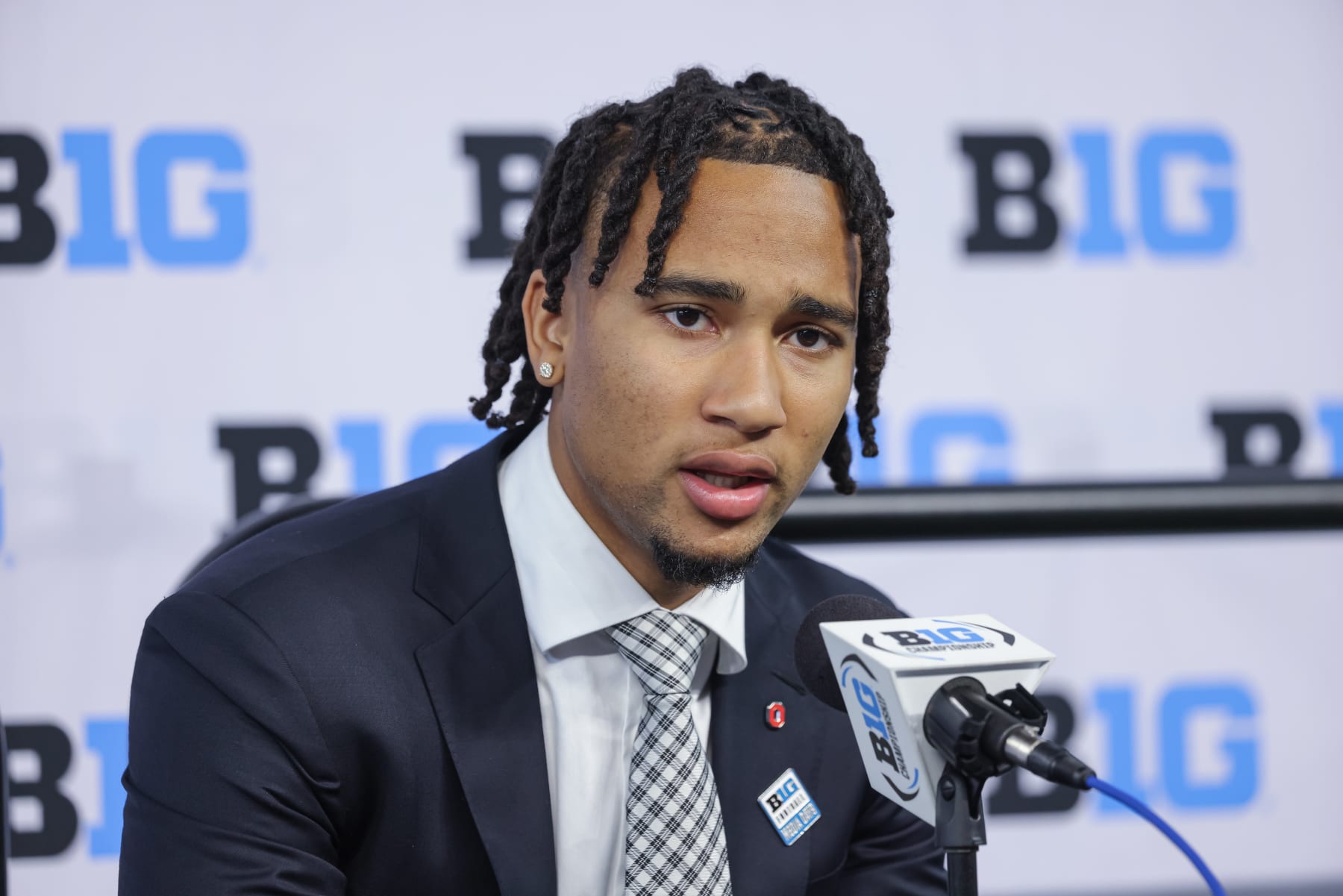 C.J. Stroud (Michael Hickey/Getty Images)
C.J. Stroud (Michael Hickey/Getty Images)Ohio State quarterback C.J. Stroud said players should receive a portion of the Big Ten's new media rights agreements.
"I definitely think it should be shared, but if not, at the end of the day, we have the NIL space," Stroud said, per Joey Kaufman of the Columbus Dispatch. "We can do it that way. The new college world is turning around, and I'm here for it."
ESPN's Adam Rittenberg reported the new broadcast contracts with CBS, Fox and NBC, which begin in July, will be worth over $7 billion over seven years and include an annual payout between $80 million and $100 million to each member school.
Stroud finished fourth in last season's Heisman Trophy voting and has become a popular choice for companies making deals for name, image and likeness as he attempts to lead the Buckeyes toward a national title.
In June, WCMH's Justin Holbrock reported the quarterback formed a partnership with the Sarchione Auto Gallery to drive a Mercedes AMG G 63 after he'd signed NIL agreements with Morris Home Furniture and apparel retailer Express earlier in the offseason.
"This game is amazing, especially the college atmosphere, because it does have amateurism to it," Stroud said. "That's definitely a plus. But at the same time, I'm not 100 percent sure what our tuition is, but I'm sure it's not the worth of what we're actually worth. My mom has always told me to know my worth."
 ✨ Watch more top videos, highlights, and B/R original content
✨ Watch more top videos, highlights, and B/R original content While the biggest NIL deals are usually going to the country's most well-known players, a revenue-sharing system could benefit all student-athletes.
Michigan head coach Jim Harbaugh argued in July the TV deal should be split with the players.
"They use their name, image and likeness on the TV broadcasts," Harbaugh said. "They're the ones signing the mega-TV deals. And a new one's coming in 2024. Why can't that be an NIL deal right from the Big Ten? Because that's who's negotiating the TV deals, and that's where the big money is."
Meanwhile, the Action Network's Brett McMurphy reported Big Ten Commissioner Kevin Warren says in an upcoming interview with HBO's Real Sports that paying student-athletes is on the table.
"Those are things we have to resolve. We have to," Warren said. "So I want to be part of this conversation and will be part of this conversation of what we can do to make this better."
Last year's Supreme Court ruling in favor of athletes being able to earn money from their NIL rights while still in college basically brought an end to the amateurism era in the NCAA.
What's followed are NIL contracts for players and a whirlwind of high-profile programs changing conferences to best align themselves to bring in future revenue.
As the money around college sports continues to rise, in large part because of TV deals, it appears the players are trending toward receiving a piece of the pie.